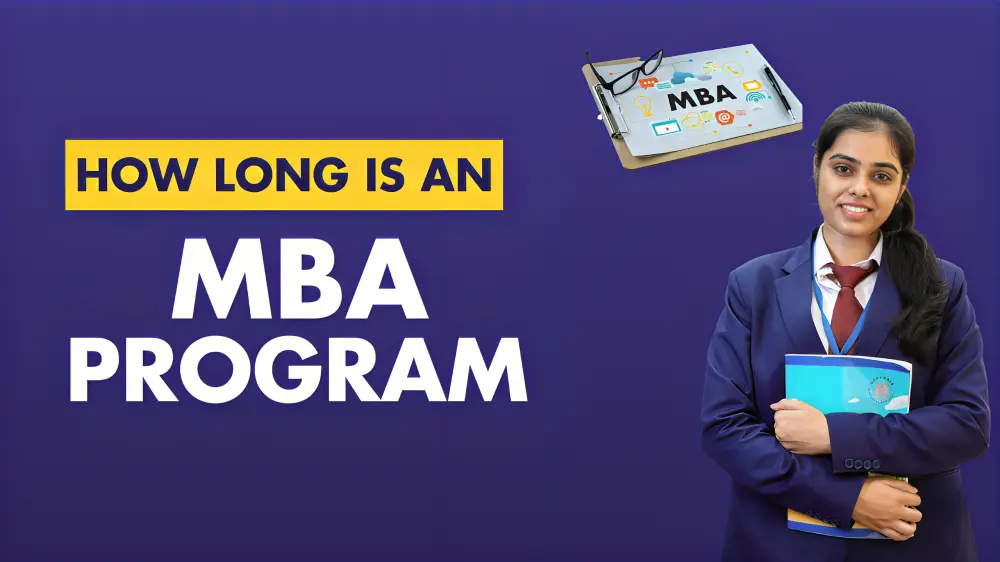How Long is an MBA Program? A Complete Guide
One of the most sought-after postgraduate degrees for professionals looking to progress in management, leadership, and business positions is an MBA (Master of Business Administration). However, “How long is an MBA program?” is a question that many potential students have. The type of MBA, study style, and institution are some of the variables that affect the response. This article will cover the various lengths of MBA programs, the variables affecting program length, and how to select the ideal MBA format for your professional objectives.
What is an MBA?
A postgraduate degree called an MBA, or Master of Business Administration, is intended to qualify and train business students in the areas of operations management, marketing, finance, human resources, and strategy. By improving their business, management, networking, and leadership abilities, this business administration course accelerates the professional development process and improves the chances for future students.
One of the most sought-after postgraduate degrees for many business professionals is an MBA. An MBA degree’s main goal is to provide people with the comprehensive training they need to establish a business, manage an existing one, or lead a corporation from start to finish.
Understanding Different MBA Formats
- Full-Time MBA: When most people hear the term MBA, they often think of this traditional method. It’s ideal if you want the classic B-school experience and are prepared to devote all of your time to learning. Usually lasting two academic years, classes allow you to focus on your studies and look into internships.
- Part-Time MBA: Trying to balance graduate school and a job? The part-time MBA program is designed to accommodate multitaskers. Although it often takes a few more years than the full-time route, it gives students the option to attend classes on the weekends or in the evenings. You can continue to pursue your desired degree and keep your job.
- Accelerated MBA: The accelerated MBA program can be completed in 12–18 months for students who are pressed for time. It’s hectic and has fewer breaks, but it’s perfect if you want to use new talents right away. This is a popular choice for those who have experience in business or who want to advance their careers quickly.
- Executive MBA (EMBA): Consider the EMBA if you have years of work experience and are interested in high-level leadership positions. Mid-career professionals are the target audience for this format, which frequently offers weekend or modular programs that enable you to put what you learn right away to use at work. EMBA students typically complete their studies in 18 to 24 months.
How Long an MBA Program is?
The average length of a full-time MBA program is one to two years. Depending on your circumstances, you may select from a range of programs, including full-time, part-time, and online. The path you pick will determine how many years or months it takes to finish your MBA. You must go beyond the number of years you will be enrolled in school to comprehend the time commitment needed for an MBA. To succeed, you must be aware of the time commitment required.
To complete your MBA, you should anticipate taking nine to twelve courses overall, depending on the program. You should budget 7 to 8 hours a week for reading, studying, and project completion for each subject. When selecting the curriculum that best suits your educational, career, and personal goals, keep all of this in mind.
What factors impact the time it takes to complete an MBA?
- MBA specializations and dual degrees: Selecting an MBA emphasis often won’t increase the amount of time you need to complete your degree; instead, it will frequently replace current elective requirements. However, your total time in school may increase if you decide to pursue a dual-degree program or extra specialties.
- Program type: The education in various MBA programs is designed to meet varying schedule preferences. While part-time MBA programs spread out their education over a longer period, accelerated MBA programs, for instance, usually compress the same amount of material into a shorter completion timetable. Depending on whether the courses are synchronous or asynchronous, online MBA programs could provide you with greater freedom to schedule your studies.
- Enrollment status: You will finish your MBA program more quickly if you are enrolled full-time than if you are enrolled part-time. Your primary job throughout your time in a full-time MBA program will be that of a student, which means you probably won’t have time for additional full-time jobs. For students who want to attend classes on the weekends and evenings while maintaining a full-time job elsewhere, part-time enrollment is typically a preferable choice.
Conclusion
The structure, area of specialty, and enrollment status all affect How Long is an MBA Program. Students must think about their professional aspirations and time commitment while deciding whether to pursue an executive, accelerated, full-time, or part-time MBA. Knowing these elements makes it easier to choose a program that effectively advances professional options while balancing employment, school, and personal obligations.






